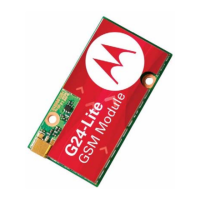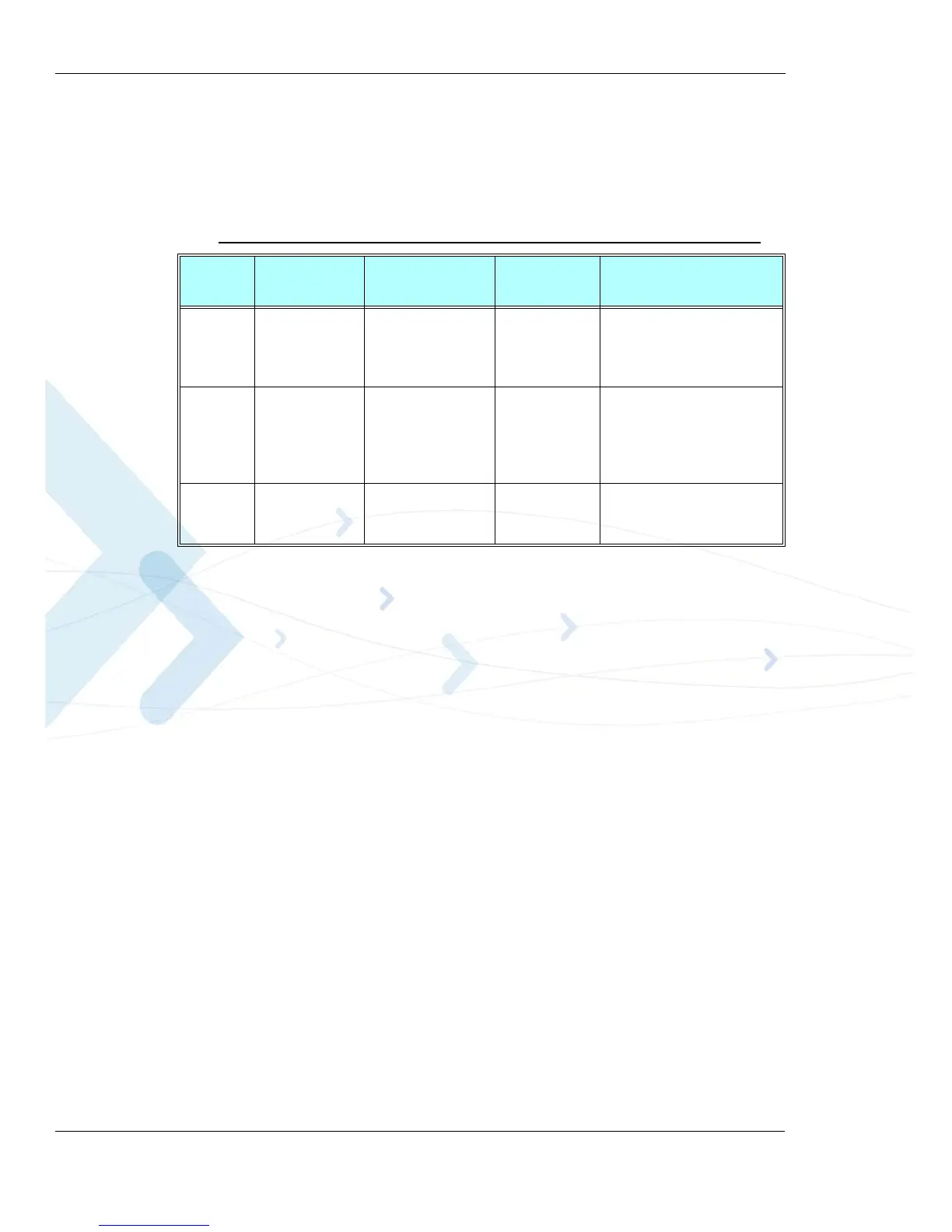SMS
3-114 G24-L AT Commands Reference Manual April 15, 2008
According to the GSM 03.38, Any reserved codings shall be assumed to be the GSM default
alphabet (the same as DCS value 0x00) by a receiving entity. Handling will be as shown in
Table 3-73.
Table 3-73 shows the conversion between the <dcs> and +CSCS setting when reading SM.
Examples:
### Store in TEXT mode SMS encoded in default alphabet with UDHI set.
### Character set is ASCII.
AT+CMGF=1
OK
AT+CSMP=81,167,0,0
OK
AT+CMGW="0544565803"
> 050003090301123456786543
+CMGW: 222
OK
AT+CMGR=222
+CMGR: "STO UNSENT","0544565803",
050003090301123456786543
OK
AT+CMGF=0
OK
AT+CMGR=222
+CMGR: 2,,25
07917952140230F251000A8150446585300000A70D050003090301123456786543
OK
### Store in TEXT mode SMS encoded in UCS2 alphabet with UDHI set.
### Character set is ASCII.
AT+CSMP=81,167,0,10
OK
AT+CMGF=1
OK
Table 3-73: <dcs> field and +CSCS settings conversion when reading SM
CASE <dcs> field User-Data-Header
Current TE
character set
Action
A Default alphabet Not Set All G24-L converts GSM
alphabet into current TE
character set according to
rules of GSM07.05, Annex A
B Default alphabet Set All G24-L converts each 8-bit
from TP-UD, encoded in
GSM alphabet into two IRA
character long hexadecimal
number
C 8-bit or UCS2 All All G24-L converts each 8-bit
octet into two IRA character
long hexadecimal number

